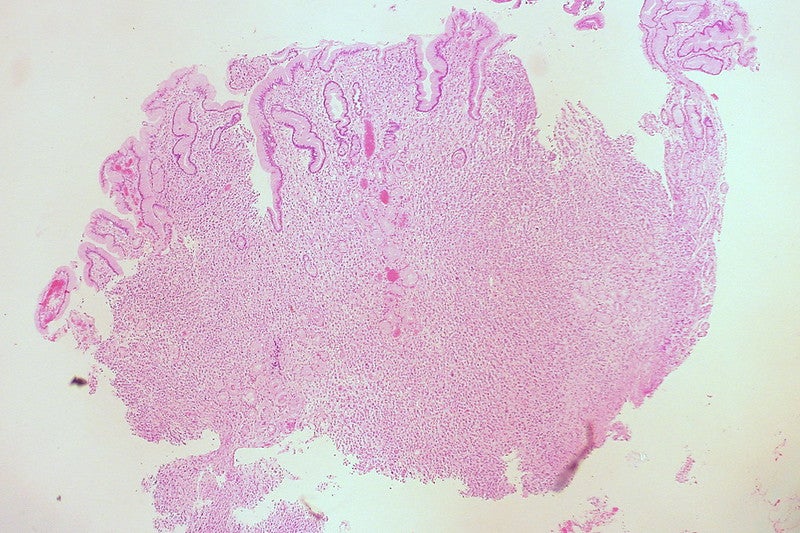
Transcenta is set to begin the Phase I clinical trial of its bi-functional anti-PD-L1/TGF-β antibody, TST005, for treating various tumour types.
The latest development comes after the US Food and Drug Administration cleared its investigational new drug application for TST005.

Discover B2B Marketing That Performs
Combine business intelligence and editorial excellence to reach engaged professionals across 36 leading media platforms.
A bi-functional anti-PD-L1 and TGF-β trap fusion protein, TST005 can concurrently target two immuno-suppressive pathways used by cancer cells for attacking the immune system.
Transcenta executive vice-president, Global R&D head and CMO Dr Michael Shi said: “TST005 is one of the few leading PD-L1/TGF-β bi-functional antibody drug candidates currently in clinical development globally.
“We plan to simultaneously develop TST005 both in China and the US under the same Phase I protocol with an innovative basket trial design.
“With the IND Clearance for TST005 in the US, we will accelerate the clinical development globally by allowing Chinese patients dosed at the current dose level when joining the study upon Chinese IND clearance.”

US Tariffs are shifting - will you react or anticipate?
Don’t let policy changes catch you off guard. Stay proactive with real-time data and expert analysis.
By GlobalDataIn vitro, TST005 demonstrated potential activity in reversing TGF-β induced T-cell suppression.
The drug prompted a significant rise in CD8 T-cell infiltration into PD-L1 expressing tumours in various syngeneic models and showed dose-dependent growth inhibition in tumour model with increased TGF-β level.
Furthermore, TST005 was well tolerated in non-human primates and had a linear pharmacokinetic profile.
Separately, Transcenta has enrolled and dosed the first subject in Phase I clinical study of TST001, a humanised monoclonal antibody plus CAPOX for treating patients with first-line locally advanced unresectable or metastatic gastric cancer.
This antibody demonstrated more potent anti-tumour activities than IMAB362 analogue in mouse xenograft experiments.
Shi added: “We hope to explore the safety, tolerability and anti-tumour activity of TST001 combined with CAPOX in first-line gastric cancer patients through this study, so as to provide a basis for later registrational clinical studies.”





